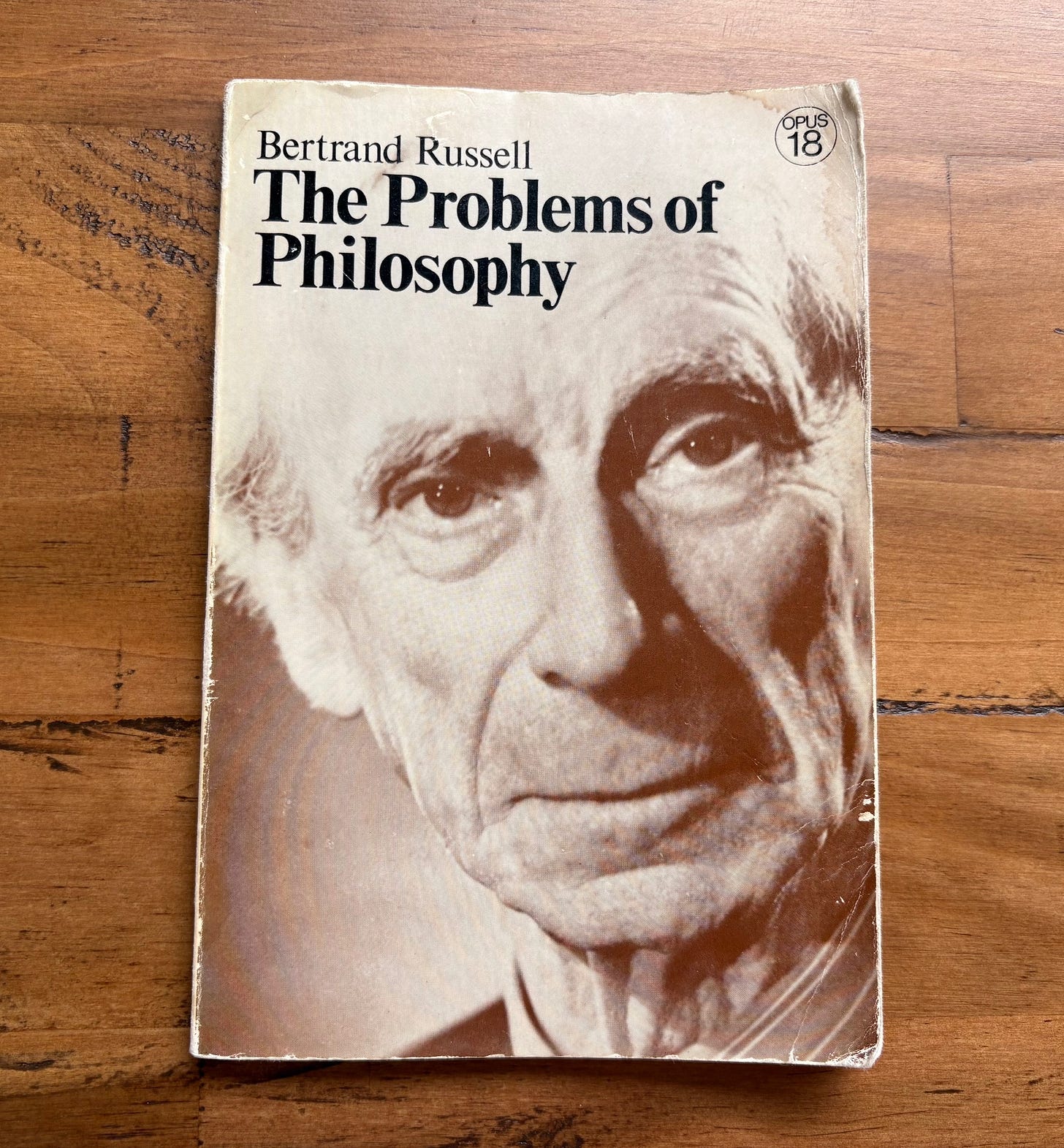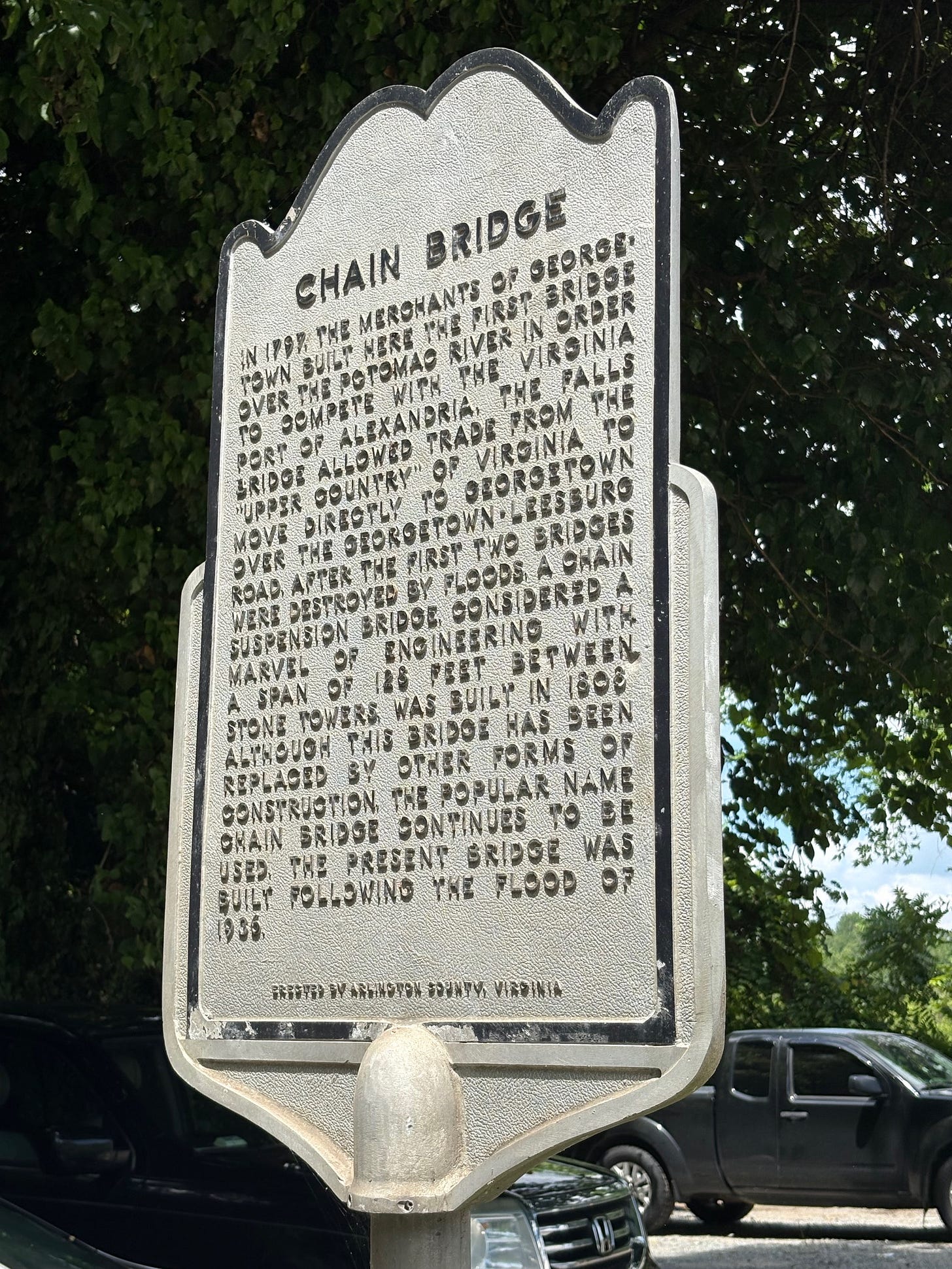five top things i’ve been reading (twenty-seventh edition)
the latest in a regular 'top 5' series
What is Life: An Operational Definition, David Oderberg
The Problems of Philosophy, Bertrand Russell
The Pentagon Disinformation That Fueled America’s UFO Mythology, Joel Schectman and Aruna Viswanatha
Selected Poems of Herman Melville, ed. Robert Penn Warren
Chain Bridge, Key Bridge, Theodore Roosevelt Bridge, Arlington Memorial Bridge
This is the twenty-seventh in a weekly series. As with previous editions, I’ll move beyond things I’ve been reading, toward the end. This week’s edition will be shorter than usual though, because I’m in the middle of writing a long piece I’ll publish here in the next day or two..
1. In a recent BioCosmos article, What is Life? An Operational Definition, David Oderberg offers two answers to one of the most difficult philosophical questions of all. If this sounds overblown, then have a quick go at trying to define ‘life’ — clearly, comprehensively, and non-circularly! — and you’ll find it really is very hard.
Oderberg appeals to a definitional division of labour to ease the way. First, he briefly discusses an argument he’s made elsewhere that life’s ‘real definition’ centres on the power of immanent causation. By this, he means that the ‘essence’ of life is having the power to undertake purposive causal activity directed at one’s own “self-perfection”. Or, put more simply, being alive is all about being able to make stuff happen for your own “well-being”!
He then spends the rest of the paper advancing an ‘operational definition’ — in the sense of a definition that’s up for empirical challenge, to the extent of “mak[ing] life measurable and testable”. The approach he takes here is to build on a claim made by Georges Canguilhem that “life is what is capable of error”. Oderberg develops this idea to argue that only living things are capable of making the types of mistake that cause things to “go badly” for themselves. Which, you’ll note, goes some way to cashing out his real definition in real terms. These mistakes are contrasted with instances of malfunctioning, and with failures of the kind that ‘happen to’ something. “No proton ever went the wrong way in a particle accelerator,” Oderberg tells us, “except relative to some theoretical perspective or expectation”.
I enjoyed this paper a lot. It’s a model of how to write readable philosophy. It’s deep and original, as well as extremely accessible. My main concern is that Oderberg's operational definition, particularly, is vulnerable to miscategorising AI. He begins to address this early on, by ruling out as alive — on his real definition — computers and other man-made things with goals that are externally directed by humans. But on many counts, AI goes beyond that. As long as you think AI is the kind of thing that can’t suffer setbacks that count as making things ‘go badly’ for it (or pushed further into thicker real-definition-land, that hold back its ‘well-being’), then all is well. Though, of course, you can't rely on AI not ‘being alive’ as a reason for thinking that, or the definition will float away..
I’ve always really valued reading Oderberg’s moral philosophy, and he's a friend of mine. A main takeaway from reading this piece is that I'm an idiot for not having read more of his metaphysics.
2. Bertrand Russell’s The Problems of Philosophy (1912) is the first philosophy book I ever read. Or rather, I read its first chapter when I was about seven, which led to me becoming somewhat obsessed with trying to work out whether tables were real. Since then, I’ve returned to this book often. Having written here, a few months ago, about On Induction, which is the sixth chapter, this week I turned to the final one, The Value of Philosophy.
It’s a funny chapter. I like where it ends up, which is in claiming that philosophical questions “enlarge our sense of what is possible”. This seems like a step forward from the idea Russell proposes earlier in the chapter that philosophy is all about uncertainty. Indeed, he accepts a link between the two, stating that while philosophy “diminish[es] our feeling of certainty as to what things are, it greatly increases our knowledge as to what they may be”.
As a natural skeptic who also believes in ascertainable objective truth of various kinds, this appeals to me. Although I’m not so convinced by the Trumpian closing claim that doing philosophy makes the mind so great, it can unify with the universe!
3. As you might guess from its title, this recent WSJ piece advances the argument that people in America were psy-oped by the military into believing in UFOs. First, we’re told that spreading rumours about alien activity was a useful distraction technique (‘Hey guys, if you see anything weird in the sky, it’s definitely not us testing a nasty new weapon!’). Second, that the hazing practice of showing rookie commanders ‘evidence’ of alien activity was useful for building loyalty. Sounds to me exactly the kinds of things someone might say if they were trying to stop us finding out the truth about the aliens! A great piece.
4. Yesterday, I read some of Melville’s war poetry. If you want a comparison, The March into Virginia (1861) is like nineteenth-century Owen. “All wars are boyish,” Melville tells us, the boys he describes heading off to fight, “chatting left and laughing right”. Then, of course, they die. Or in “shame survive”. It has these wonderful opening lines, “Did all the lets and bars appear To every just or larger end…”.
5. On Saturday, I spent an excellent afternoon with friends, checking out four bridges that link up Virginia and DC. The Arlington Memorial was the most beautiful, the Key the coolest, and the Theodore Roosevelt the biggest missed opportunity — but my favourite was the Chain. The main reason I like the Chain Bridge is that it’s not a chain bridge now, and neither was it in its first instantiation. It’s a pretty good Bridge of Theseus.










Philosophy "diminishes our feeling of certainty as to what things are", but "increases our knowledge as to what they may be." Love it! I might use that next time I get into an argument.